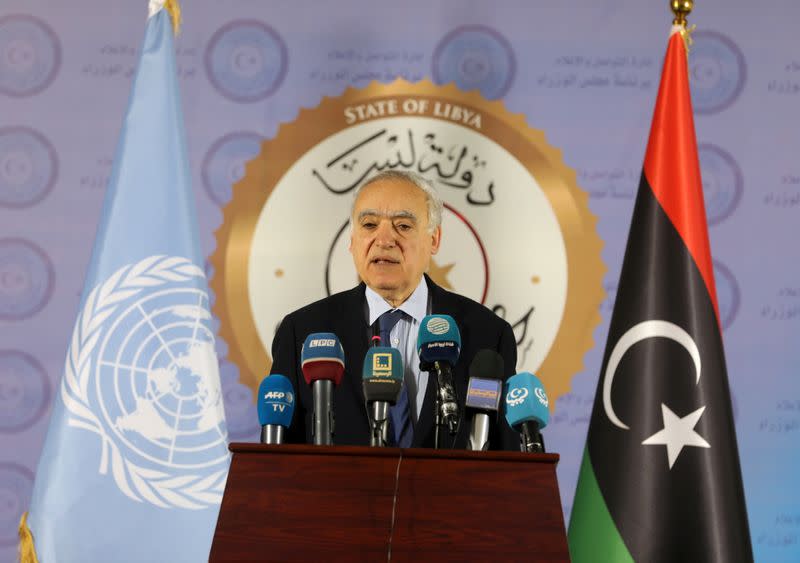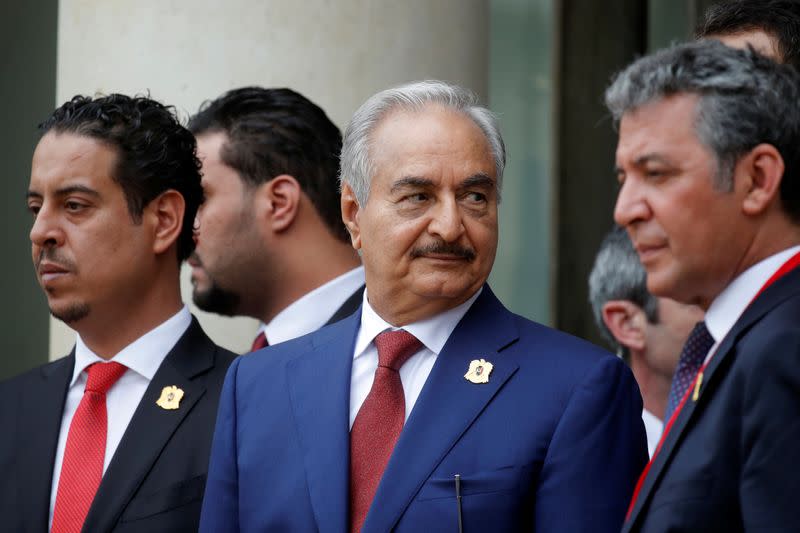U.N. Libya envoy blames deadly military academy strike on Haftar ally
By Michelle Nichols
UNITED NATIONS (Reuters) - The United Nations Libya envoy said on Monday that a country supporting commander Khalifa Haftar's self-styled Libyan National Army (LNA) was likely responsible for a deadly drone attack on a military academy in the capital Tripoli.
After briefing the U.N. Security Council, a visibly frustrated Ghassan Salame had a message for countries supporting either Haftar's LNA or the internationally-recognized Government of National Accord (GNA): "Keep out of Libya."
At least 30 people were killed and dozens wounded in the attack on a military academy in the Libyan capital late on Saturday, the GNA health ministry said. Tripoli is controlled by the GNA and has been combating an LNA offensive that began in April.
"Dozens of cadets are being killed in a military academy - unarmed, entirely unarmed - by a drone attack that is probably done by a country supporting the LNA," Salame told reporters. "Keep your hands out of Libya, the country is suffering too much from foreign interference in different ways."
Turkey has backed the GNA while Haftar has received support from the United Arab Emirates, Egypt and Jordan. Russian military contractors have also been deployed with Haftar's LNA, diplomats and analysts said.
"There is enough weapons in Libya, they don't need extra weapons, there are enough mercenaries in Libya, so stop sending mercenaries, as is the case right now with hundreds, probably thousands, coming into the country," Salame said.
Libya has lacked stable central rule since leader Muammar Gaddafi was overthrown in 2011 by rebel fighters with air support from NATO. Salame has been trying to mediate an end to the conflict.
"I'm really angry to see that everybody wants to talk about Libya and very few people want to talk about the Libyans. What happens to the Libyans?," Salame said.
"Libya is not only an oil story, Libya is not only a gas story, Libya is not only a geopolitical story, it is also a human story and people are suffering," Salame said. "There is no international clear message that enough is enough."
The U.N. Security Council said in a statement after Salame's briefing that it was concerned by the recent escalation in fighting and stressed the need for countries to comply with the U.N. arms embargo on Libya and cease foreign interference.
"The situation is bleak right now ... but let me also emphasize our determination as the U.N. to try to find a way out," Salame said.
(Reporting by Michelle Nichols; Editing by Chris Reese and Paul Simao)


